Australia pledges rescue aid for Papua New Guinea after landslide
Australia has offered to help with rescue and recovery efforts after a remote village in neighbouring country Papua New Guinea was hit by a devastating landslide
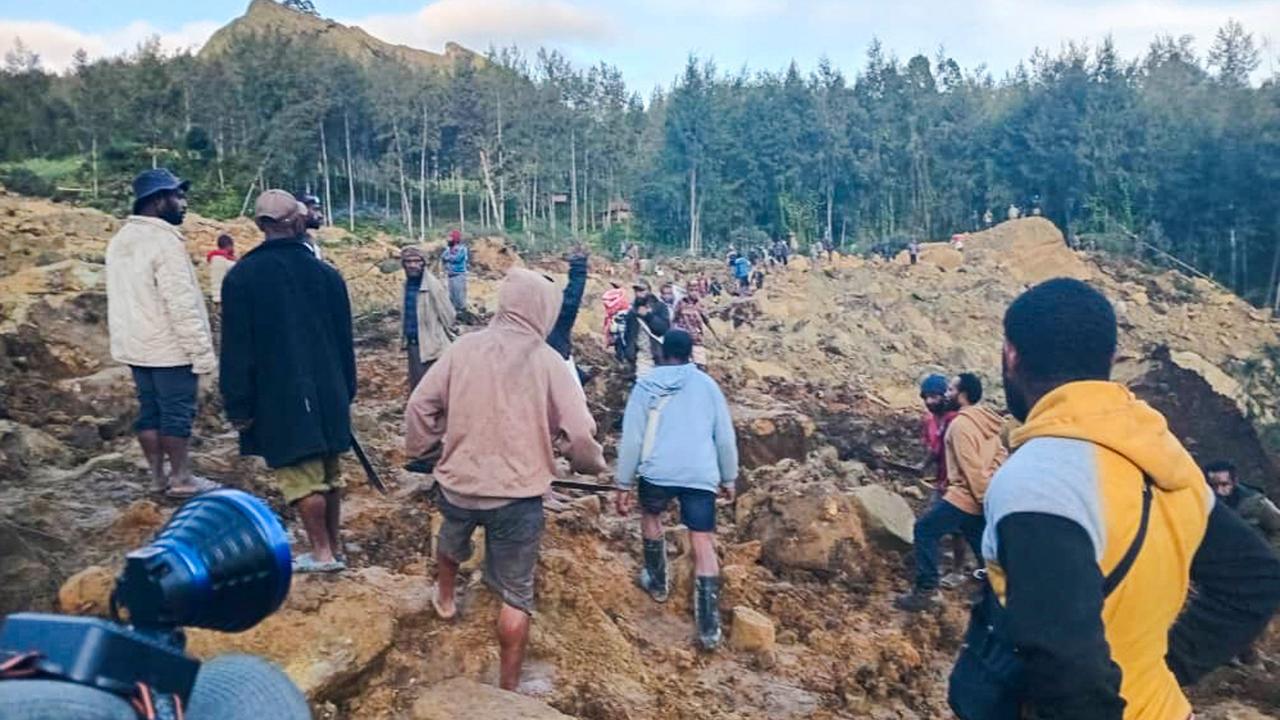
READING LEVEL: RED
Australia has offered rescue aid after a western province of our near neighbour Papua New Guinea was hit by a major landslide.
Rescuers have been racing to save trapped villagers after the landslide directly above the remote hillside village of Maip Mulitaka in Enga province in the early hours of Friday morning.
The landslide occurred after a chunk of nearby Mount Mungalo collapsed, bringing down rocks and dirt over the village.
Australia’s Foreign Minister Penny Wong and the High Commissioner for Papua New Guinea have offered Australian support in rescue, relief and recovery.
“Australia stands ready to respond to requests from the PNG Government,” a DFAT spokesman said.
Papua New Guinea’s national disaster centre told the United Nations (UN) that about 2000 people had been buried by the landslide and that it had also caused “major destruction to buildings, food gardens and caused major impact on the economic lifeline of the country.”
The level of devastation has been predicted to cause serious health impacts. More than 1000 people have been left homeless and major sources of food and water supplies for the village have been destroyed.
The World Health Organisation (WHO) said it was standing by to help.
“Our hearts go to the people in Papua New Guinea who have tragically lost loved ones in the landslide,” Tedros Adhanom Ghebreyesus, chief of WHO said on X, formerly Twitter, adding: “We stand ready to support the government to meet urgent health needs.”
King Charles also sent a message to the people affected by the disaster.
As in Australia, Papua New Guinea is a constitutional monarchy and the Head of State is King Charles III, represented in PNG by Governor-General Sir Robert Dadae.
“My wife and I were deeply shocked and saddened to learn of the devastating landslide in Enga, and the tragic loss of so many lives, homes and food gardens,” said King Charles.
“I have witnessed first-hand and have great admiration for the extraordinary resilience of the peoples of Papua New Guinea and the Highlands.
“I have faith that your communities will come together to support the survivors and the recovery in these heartbreaking circumstances.”
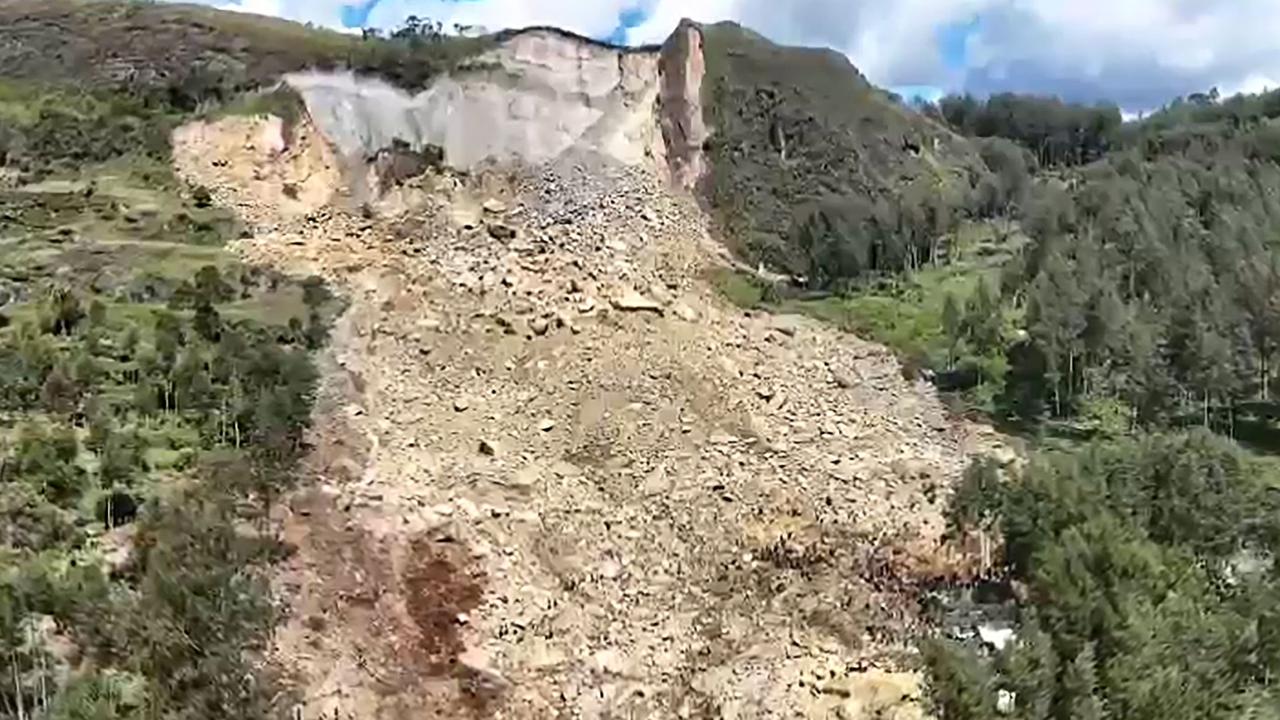
Other world leaders, including US President Joe Biden and French President Emmanuel Macron, have also pledged support.
The remote, mountainous terrain of Papua New Guinea’s highlands has made rescue attempts both difficult and risky, with the land remaining unsteady for hours after the landslide.
Miraculously, a newly married couple was pulled from the rubble alive after being trapped for hours.
Australia and Papua New Guinea have maintained a close relationship over time. Australia is PNG’s largest trade partner and the two countries have strong diplomatic relations while recognising one another as sovereign states – also known as bilateral relations.
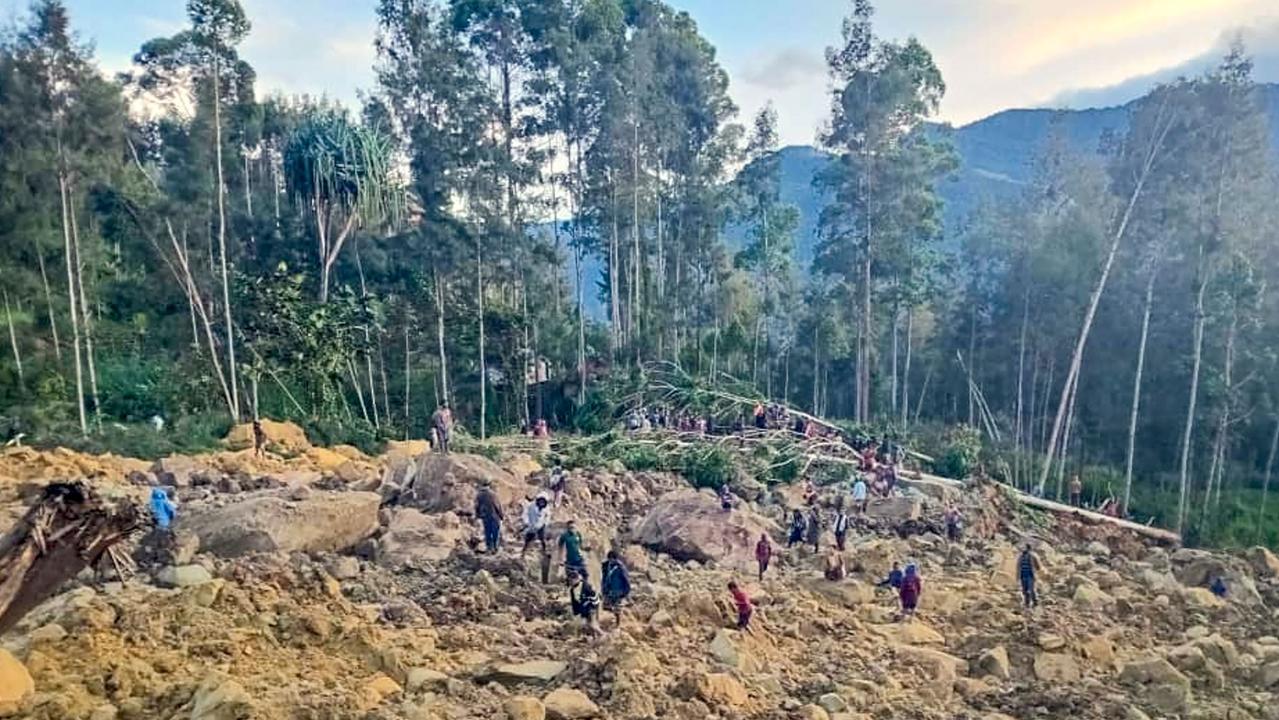
WHAT CAUSES LANDSLIDES?
Landslides occur when earth, rock or debris fall down a slope of land. According to National Geographic, landslides can be caused by rain, earthquakes, volcanoes or other factors like erosion that make the land unstable. Agriculture and land clearing could destabilise a slope by removing plant and tree roots that hold the earth in place.
Geological factors, like weak or fractured rock, could also lead to a movement of earth.
LEARNING FROM LANDSLIDES
According to Associate Professor Pierre Rognon from the University of Sydney, landslides happen when the pull of gravity becomes stronger than the rock and dirt matter, or geomaterial, that makes up a slope.
“Then, part of this slope starts sliding downhill,” he said in an article from The Conversation. “Depending on where the slope fails, the material sliding down can be just a few cubic metres or a few million cubic metres in volume.”
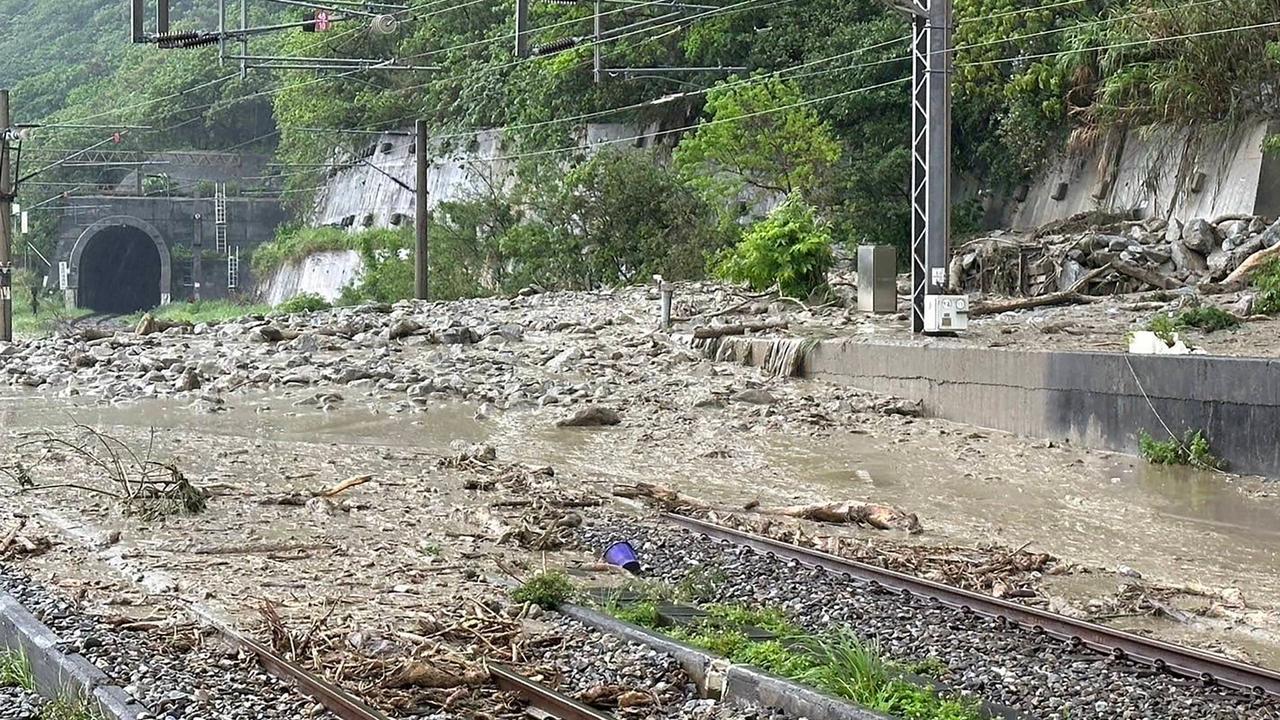
Heavy rain can cause a landslide by seeping through the ground and soaking it like a sponge, which adds weight to the earth, thus increasing the effect of gravity.
Earthquakes often cause landslides by shaking the earth and weakening the ground over time.
“This is why PNG is so prone to landslides, as it sits on an active fault and is subjected to heavy rainfalls,” Assoc Prof Rognon said.
Human activity can often bring about landslides, he added. The removal of roots through deforestation and the shaking of the ground through mine blasts both work to weaken the earth and increase the risk of landslides.
The combination of different factors causing landslides makes them very difficult to predict.
“You would need a prediction for earthquakes and rainfall, in addition to a perfect knowledge of the slope-forming geomaterial,” he said.
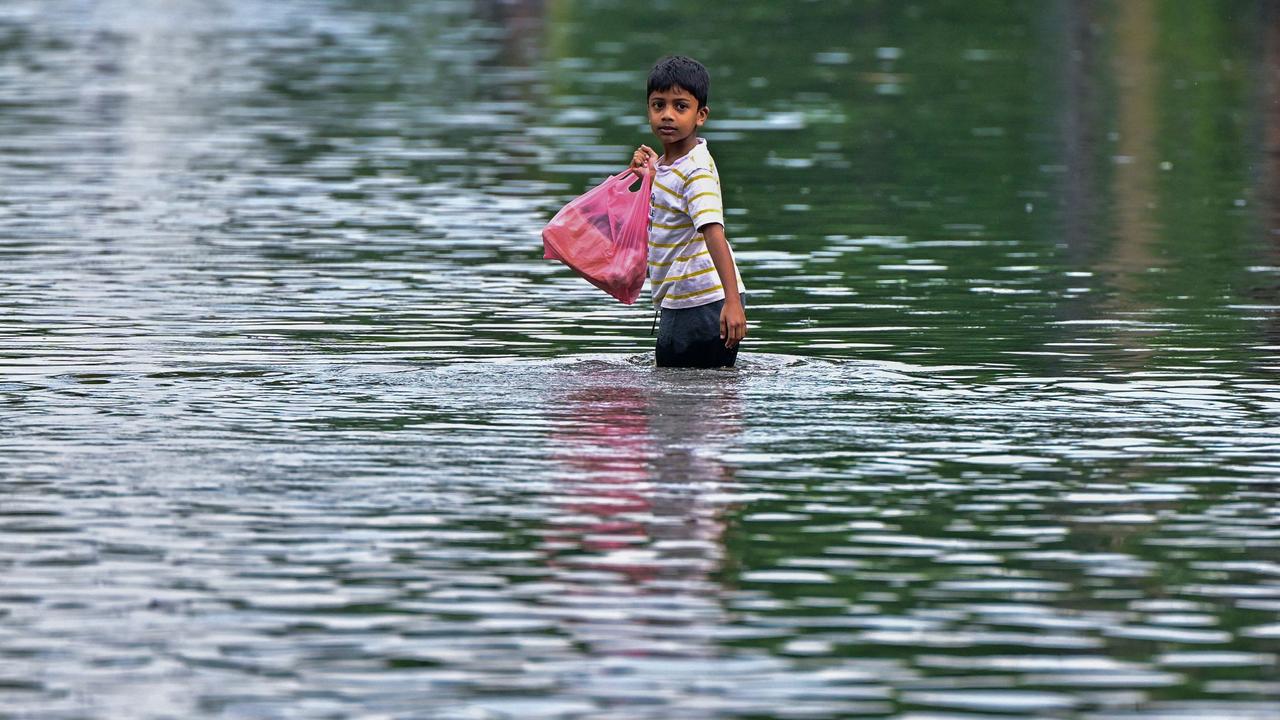
Calculating the strength of geomaterials could be an almost impossible task given there are various kinds of rocks, silt, sands and clay, with a strength varying “from a factor of one to 1,000,” he said.
Not only would every slope need to be three-dimensionally mapped using incomplete information, you would also need to know about every crack in rock mass – plus, you would need to combine these pieces of information with predictions for rainfall and earthquakes, making it an extremely difficult task.
“Unfortunately, all the money in the world can’t buy accurate landslide predictions – especially in remote parts of the world,” he said.
POLL
GLOSSARY
- constitutional monarchy: a system of power where the King or Queen does not have all the power – rather they must follow the country’s constitution. In PNG, a Governor-General is appointed by the King to act on his behalf
- sovereign states: independent from one another
- destabilise: take away the stability, making something unsafe and prone to collapse
- fractured: broken or split
EXTRA READING
Why Aussies are leaving New Caledonia
Biggest Taiwan quake in 25 years
Climate topics tackled at COP28
QUICK QUIZ
1. Which part of Papua New Guinea was affected by the landslide?
2. Why has it been challenging to rescue people?
3. Which countries have pledged support?
4. What is the name of the mountain that partially collapsed?
5. What causes landslides?
LISTEN TO THIS STORY
LISTEN TO ‘LEARNING FROM LANDSLIDES’ EXPLAINER
CLASSROOM ACTIVITIES
Aid help
In disaster situations such as this, what are the urgent necessities countries such as Australia need to help supply to help the people of Papua New Guinea.
Write a list below of the ten most useful things our Government could provide to help this country in need (think of rescue, relief and recovery):
1.
2.
3.
4.
5.
6.
7.
8.
9.
10.
Time: allow 20 minutes to complete this activity
Curriculum Links: English, Personal and Social, Critical and Creative Thinking
Extension
“The level of devastation has been predicted to cause serious health impacts”.
What might these impacts be?
What can other countries do to try and lessen the long-term effects of this landslide disaster?
Time: allow 15 minutes to complete this activity
Curriculum Links: English, Science, Personal and Social, Critical and Creative Thinking
VCOP ACTIVITY
BAB it!
Show you have read and understood the article by writing three sentences using the connectives “because’’, “and”, and “but” (BAB). Your sentences can share different facts or opinions, or the same ones but written about in different ways.

